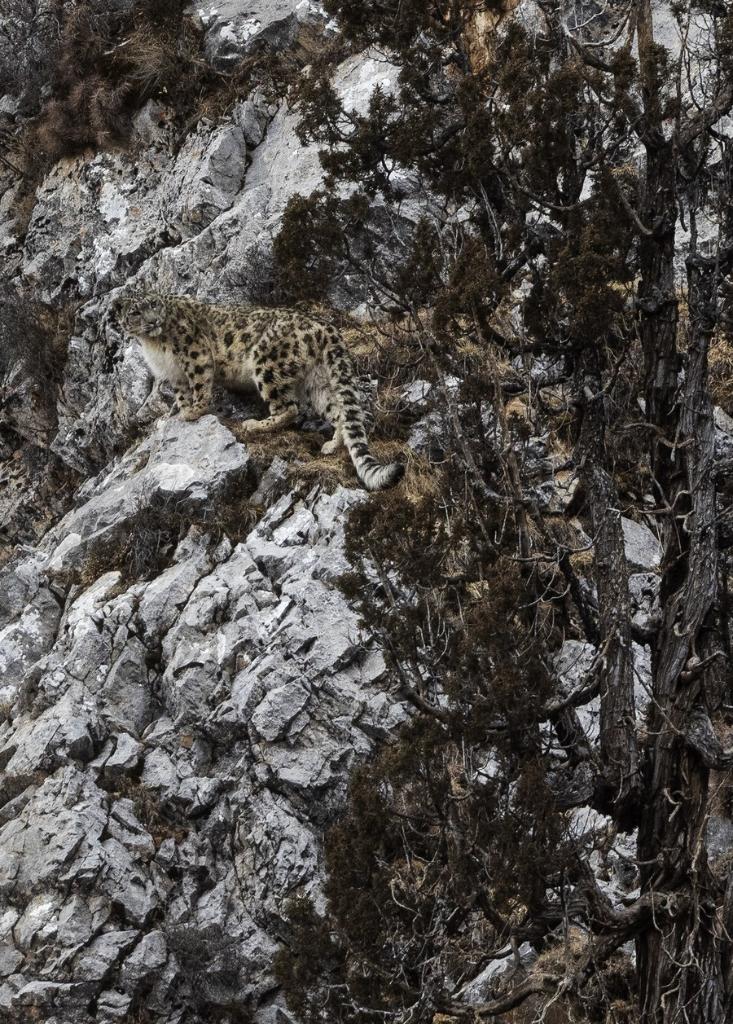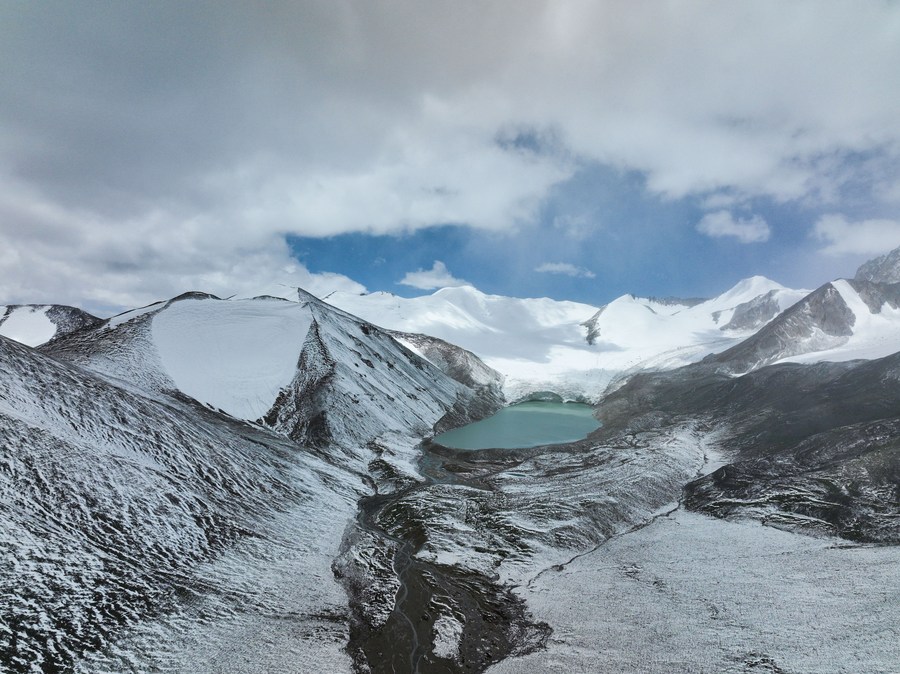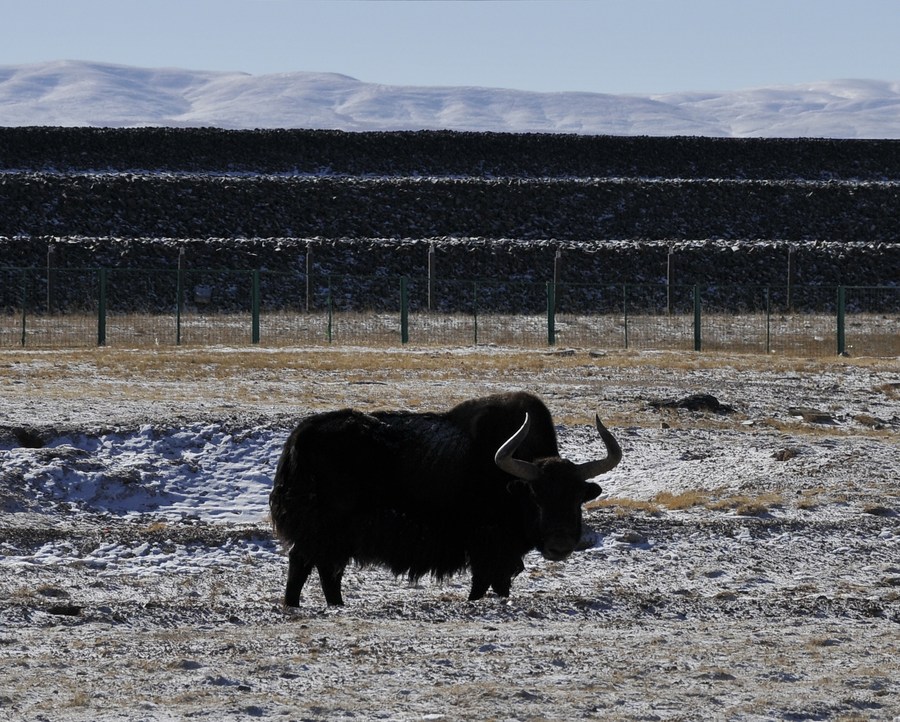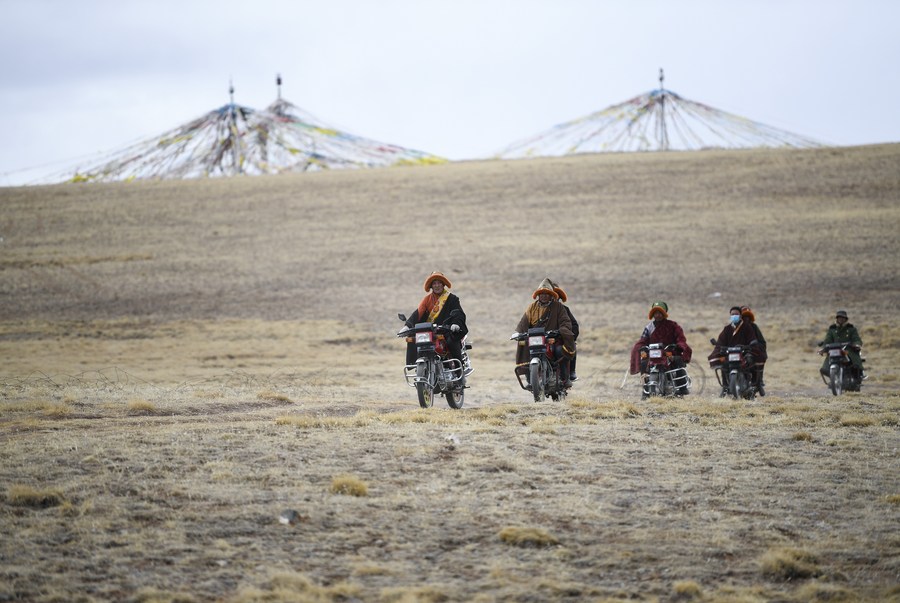*The law on ecological conservation on the Qinghai-Tibet Plateau is a new addition to China's laws for special regions, following the enactment of the Yangtze River Protection Law, the Yellow River Protection Law, and the Black Soil Protection Law.
*"We have no quick fix to prevent ecological changes such as the melting of glaciers on the Qinghai-Tibet Plateau. What we can do, however, is to keep human activities within the ecological limit. This is the best way to protect it," a lawmaker said.
*Over the past 10 years, China has made remarkable progress in legislation on ecological and environmental protection, and a comprehensive, pragmatic, and rigorous legal system for ecological and environmental protection has been formed.
BEIJING, April 26 (Xinhua) -- China's top legislature on Wednesday adopted a law to protect the fragile ecosystem of the Qinghai-Tibet Plateau, known as "the roof of the world."
The law on ecological conservation on the Qinghai-Tibet Plateau, passed at a standing committee session of the National People's Congress (NPC), China's top legislature, will take effect on Sept. 1.
The law is a new addition to China's laws for special regions, following the enactment of the Yangtze River Protection Law, the Yellow River Protection Law, and the Black Soil Protection Law.

A snow leopard is pictured in a canyon in Zadoi County of Yushu Tibetan Autonomous Prefecture, northwest China's Qinghai Province, Feb. 21, 2023. (Xinhua/Fei Maohua)
"The plateau is an important shield for China's ecological security. Therefore, the promulgation of the law bears great significance," said Yuan Jie, head of the administrative law section of the Legislative Affairs Commission under the NPC Standing Committee.
He went on to add that the significance of the law goes far beyond the plateau region.
The Qinghai-Tibet Plateau, with an area of around 2.58 million square kilometers, spans six provincial-level regions in western China. It is the source of several major rivers of Asia, such as the Yangtze, Yellow and Mekong rivers which together nourish around 3 billion people.
"Despite having one of the best ecological environments in the world, the natural ecosystem of the plateau is inherently fragile and sensitive," said Shui Yanping, deputy director of the Department of Ecology and Environment of Tibet Autonomous Region. "Once damaged, it is difficult to repair."
The plateau is facing multiple ecological challenges, including retreating glaciers, melting permafrost, and the impact of global warming, Shui said.

This aerial photo taken on July 21, 2022 shows the glaciers and lake in the Yangtze River's source region in northwest China's Qinghai Province. (Xinhua/Zhang Long)
According to lawmakers, formulating the law will help strengthen the top-level design of the ecological protection system for the plateau.
The law outlines the overall layout of the plateau ecology security, stipulates protection and restoration measures, risk prevention and control, and safeguards and supervision.
The draft law entered its second reading late last year with enhanced provisions on preserving biodiversity. It underscored the protection of snow-capped mountains, glaciers and frozen soil in the third reading.
LIMIT HUMAN ACTIVITIES
Protection is the cornerstone of the new law, which stresses the principle of respecting, complying with and protecting nature.
As a lawmaker participating in the legislation once said, "We have no quick fix to prevent ecological changes such as the melting of glaciers on the Qinghai-Tibet Plateau. What we can do, however, is to keep human activities within the ecological limit. This is the best way to protect it."
The law prohibits production and construction activities that may cause soil erosion in areas that already suffer severe soil erosion or have fragile ecology.
It bans sand mining and mining activities that do not meet conservation requirements in nature reserves for river sources and imposes strict rules against the construction of new small hydropower stations on the plateau.
The law specifies that nature reserves should be established to protect rare, endangered or endemic wild animals and plants so that the authenticity and integrity of important natural ecosystems can be maintained.
It is noteworthy that more than a dozen endangered or endemic wild animal and plant species, including wild yak, snow leopard and giant panda, were listed in the law and put under protection, Yuan said.

A wild yak is pictured in Hoh Xil, northwest China's Qinghai Province, Jan. 20, 2022. (Xinhua/Wang Bo)
The law includes provisions for dealing with unruly or uncivil travelers. It prescribes penalties for those who litter on the plateau, stipulating that individuals with serious violations shall be fined between 500 yuan (about 72 U.S. dollars) and 10,000 yuan.
The Qinghai-Tibet Plateau is home to the world's highest mountain -- Mt. Qomolangma.
Lhapa Tsering, a staff member of the Qomolangma National Nature Reserve Administration, was particularly upbeat about the new law.
"As the May Day holiday approaches, the number of tourists visiting Mt. Qomolangma is increasing," he said. "I believe the law will raise public awareness of protecting the environment and curb such behaviors."
PROGRESS IN LEGISLATION
Wang Xiangtao, associate professor at Tibet Agricultural and Animal Husbandry University, said promoting ecological advancement must rely on institutions and laws, and people must respect, comply with and protect nature.
Over the past 10 years, China has made remarkable progress in legislation on ecological and environmental protection, and a comprehensive, pragmatic, and rigorous legal system for ecological and environmental protection has been formed.

Rangers patrol around Yoigilangleb Qu (river) in Qumarleb County of Yushu Tibetan Autonomous Prefecture, northwest China's Qinghai Province, April 21, 2022. (Xinhua/Zhang Long)
In 2014, the Environmental Protection Law was revised and has since been called "the strictest" environmental protection law in history. In 2018, "ecological advancement" was written into the Constitution.
Today, China has more than 30 laws concerning the ecological and environmental protection as well as over 100 administrative regulations and over 1,000 local laws and regulations putting various natural resources -- including mountains, waters, forests, fields, lakes, grasses, deserts, glaciers and snow mountains -- under sound legal protection.
The past decade has seen improvements in the ecological environment in the country, and people living in the Qinghai-Tibet Plateau have also experienced these positive changes.
"In recent years, the government has strengthened ecological protection and built a sewage treatment plant near Basum Lake. Better ecology of the place has attracted more birds," said Tsering Yangzom, a tourist guide at Basum Lake in Tibet.
"Only when priority is given to ecological protection in regional development can clean waters and lush mountains truly bring wealth," said Wang, the associate professor.
"A good ecological environment is a blessing for all people on the plateau," he added.





